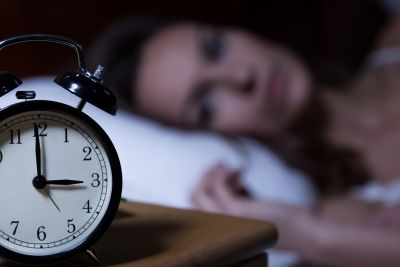Why This Matters More Than You Think
If you’ve ever stared at the ceiling at 2 a.m. wondering why your body refuses to shut down, you’re not alone—and you’re not imagining things.
For women in perimenopause or menopause, disrupted sleep isn’t just annoying; it’s a biochemical storm brewing beneath the surface.
Your hormones and your sleep patterns are in constant conversation, and when one is out of sync, the other follows. Understanding this relationship isn’t just helpful—it’s essential.
This article unpacks how hormone changes affect your sleep (and vice versa), with a focus on women navigating midlife.
We’ll explore key hormones like estrogen, progesterone, cortisol, and melatonin, explain why your sleep may have suddenly gone sideways, and offer evidence-based strategies to help you find rest—and balance.
Hormones 101: The Sleep Edition
Hormones are your body’s chemical messengers, responsible for regulating everything from mood and metabolism to sex drive and—you guessed it—sleep.
During perimenopause and menopause, levels of estrogen and progesterone begin to fluctuate or decline, throwing off the natural sleep-wake cycle known as the circadian rhythm.
Key hormone players in your sleep story:
- Estrogen: Helps regulate body temperature, mood, and REM sleep. When it drops, you may experience hot flashes, night sweats, and mood swings—all sleep killers.
- Progesterone: Often called the "relaxation hormone," it has a sedative effect. Lower levels can contribute to anxiety and insomnia.
- Melatonin: Known as the "sleep hormone," melatonin production naturally decreases with age but is further disrupted by hormonal imbalances.
- Cortisol: Your stress hormone. Ideally, cortisol is high in the morning and low at night. Hormonal shifts can invert that cycle, keeping you wired at bedtime.
Hormonal changes don’t just make you uncomfortable—they biologically rewire how your brain and body prepare for and stay in restorative sleep.
How Hormone Imbalance Disrupts Sleep
1. Night Sweats & Temperature Spikes
When estrogen levels decline, the hypothalamus (your brain’s thermostat) becomes more sensitive. Even a minor internal temperature change can trigger a hot flash or night sweat, waking you up drenched and disoriented.
2. Mood Disorders & Anxiety
Hormonal fluctuations increase the risk of mood disorders. Progesterone’s calming effect diminishes, and serotonin production (which estrogen helps regulate) takes a hit. The result? Elevated anxiety, racing thoughts, and a harder time falling or staying asleep.
3. Fragmented Sleep Architecture
You may find yourself spending less time in deep sleep (stage 3 and REM), the most restorative phases. This leads to daytime fatigue, irritability, and poor cognitive function.
4. Circadian Rhythm Disruption
Cortisol and melatonin cycles become erratic. This misalignment throws off your body clock, making it difficult to fall asleep at night and feel awake during the day.
5. Increased Sleep Apnea Risk
Postmenopausal women are at greater risk for sleep apnea due to weight gain, reduced muscle tone, and loss of protective effects from estrogen. Sleep apnea fragments rest and decreases oxygen saturation, compounding fatigue and health risks.
For the Men: Hormones & Sleep Aren’t Just a Women’s Issue
Low testosterone in men—often starting in your 40s or 50s—can significantly disrupt sleep. Symptoms include:
- Insomnia or light sleep
- Increased risk of sleep apnea
- Daytime fatigue despite a full night in bed
- Mood changes and low libido
Testosterone has a reciprocal relationship with sleep: poor sleep reduces testosterone production, and low testosterone impairs sleep quality. Getting tested for low T can be an important first step toward restoring energy and restful sleep.
Practical Strategies to Reclaim Your Rest
Sleep isn’t just a luxury—it’s a hormone reset button. Here’s how to hit it:
1. Consider Hormone Therapy
Bioidentical hormone replacement therapy (BHRT) can restore balance by supplementing estrogen, progesterone, or testosterone, helping recalibrate your sleep cycles. Always consult with a hormone specialist to personalize your plan.
2. Regulate Light Exposure
Morning sunlight helps anchor your circadian rhythm and reduce nighttime cortisol. In the evening, minimize screen time and use warm lighting to encourage melatonin production.
3. Cool Down Your Sleep Environment
Set your thermostat to 65–67°F, use moisture-wicking sheets, and consider a cooling mattress pad to reduce night sweats and temperature spikes.
4. Mind Your Magnesium & Melatonin
These natural supplements can support better sleep—magnesium calms the nervous system, while melatonin helps realign your sleep-wake rhythm. Always consult your provider before starting new supplements.
5. Practice Cortisol Control
Gentle evening activities like journaling, stretching, or slow breathing help reduce cortisol levels and prepare your body for rest. Avoid intense workouts or stressful conversations late in the day.
What This Means for You
Your sleep quality isn’t just about habits—it’s deeply tied to your hormones. If you’re navigating midlife and waking up exhausted, it’s time to stop blaming stress or age alone.
Hormone imbalance could be at the root.
The good news? You have options. From personalized hormone therapy to lifestyle shifts and supplement support, there’s a path back to real rest—and a clearer, calmer version of you.
Let’s get you there. Ready to restore your sleep and sanity? Schedule a private 30 minute consult with a MedStudio specialist today. You don’t have to wait to feel like you again.

